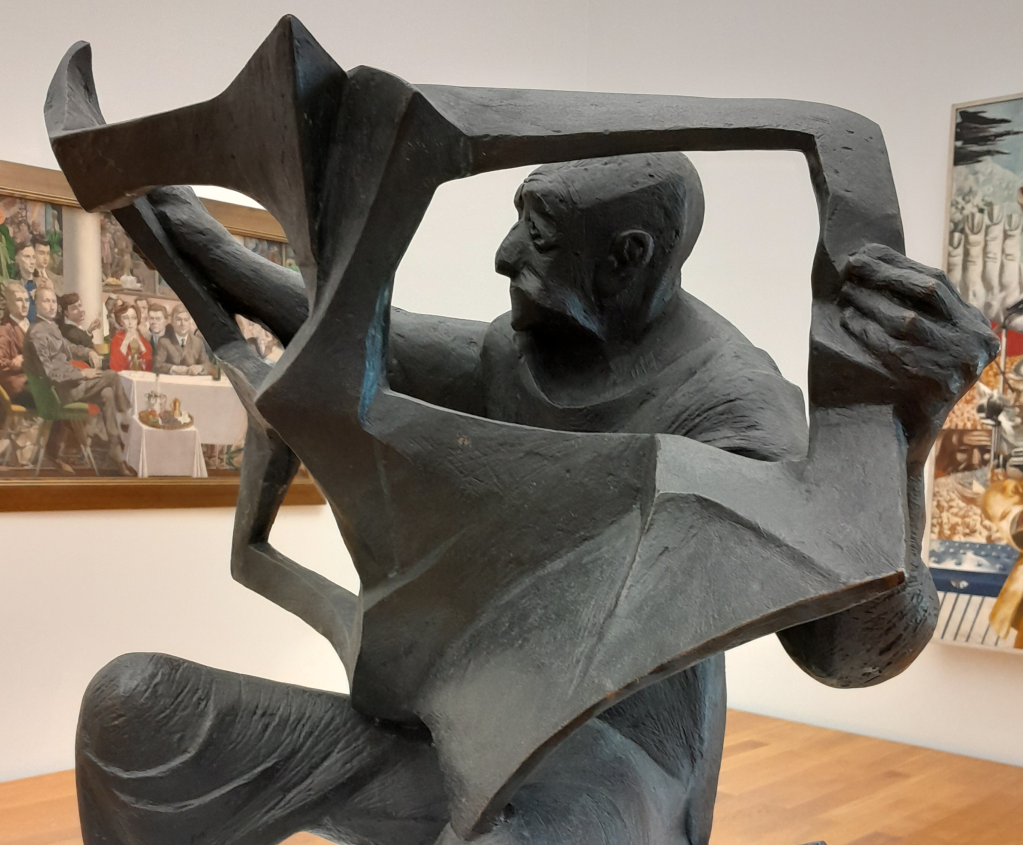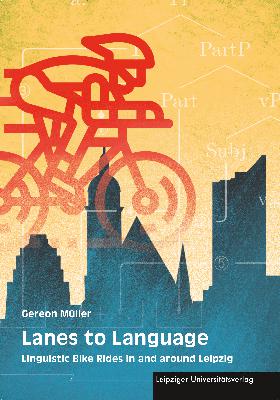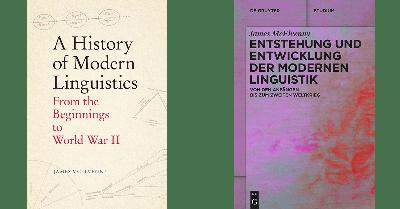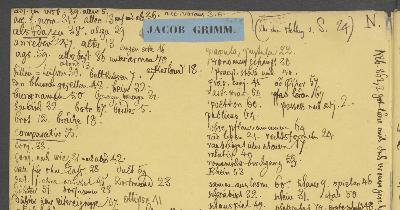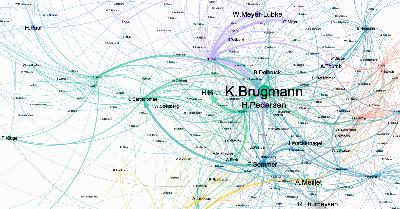Podcast episode 40: Interview with Nick Riemer on politics, linguistics and ideology
Description
In this interview, we talk to Nick Riemer about how linguistic theory and political ideology can interact.
<figure class="wp-block-audio"></figure>
Download | Spotify | Apple Podcasts
References for Episode 40
Ahmed, Sara. 2012. On being included: Racism and diversity in institutional life. Durham, NC: Duke University Press.
Althusser, Louis 1996 [1965]. Marxism and Humanism. In For Marx (B. Brewtser, tr.), London: Verso, 218–238.
Althusser, Louis 2014 [1970]. Ideology and Ideological State Apparatuses (Notes towards an Investigation) (B. Brewster, tr.). In Louis Althusser, On the Reproduction of Capitalism: Ideology and Ideological State Apparatuses. London: Verso, 232–272.
Althusser, Louis. 2015 [1976]. Être marxiste en philosophie. Paris: PUF.
Auroux, Sylvain 1994. La révolution technologique de la grammatisation. Liège: Mardaga
Barsky Robert F. 2007. The Chomsky Effect. A Radical Works Beyond the Ivory Tower. Cambridge: MIT.
Bauman, Richard and Charles L. Briggs 2003. Voices of Modernity. Language Ideologies and the Politics of Inequality. Cambridge: Cambridge University Press.
Bourdieu, Pierre 1991. Language and Symbolic Power (G. Raymond and M. Adamson, tr.). Cambridge: Polity.
Calvet, Louis-Jean 2002. Linguistique et colonialisme. Paris : Payot.
Canut, Cécile 2021. Provincialiser la langue. Langage et colonialisme. Paris: Éditions Amsterdam
Charity Hudley, Anne H., Christine Mallinson, Mary Bucholtz 2020. Toward racial justice in linguistics: Interdisciplinary insights into theorizing race in the discipline and diversifying the profession. Language 96: e200-e235. DOI: https://doi.org/10.1353/lan.2020.0074
Chevalier Jean-Claude, Encrevé Pierre, 2006. Combats pour la linguistique, de Martinet à Kristeva. Essai de dramaturgie épistémologique. Lyon : ENS Éditions.
Chomsky, Noam 2004. Language and Politics (C.P. Otero, ed.). Expanded edition. Oakland, AK Press.
DeGraff, Michel. 2005. Linguists’ most dangerous myth: the fallacy of creole exceptionalism. Language in Society 34: 533-591.
DeGraff, Michel 2020. Toward racial justice in linguistics: The case of Creole Studies (response to Charity Hudley et al.). Language 96: e292-e306.
Eagleton, Terry 1991. Ideology: An Introduction. London: Verso.
Errington, Joseph 2008. Linguistics in a colonial world: a story of language, meaning, and power. Malden, MA: Blackwell.
Flores, Nelson Jonathan Rosa 2015. Undoing Appropriateness: Raciolinguistic Ideologies and Language Diversity in Education. Harvard Educational Review 85: 149-171.
Golumbia, David 2009. The Cultural Logic of Computation. Cambridge, MA: Harvard.
Greimas, Algirdas-Julien 1956. L’actualité du saussurisme. Le français moderne 24: 191-203.
Heller, Monica and Bonnie McElhinny 2017. Language, Capitalism, Colonialism: Toward a Critical History. Toronto: University of Toronto Press.
Hirschkop, Ken. 2019. Linguistic Turns, 1890–1950. Writing on Language as Social Theory. Oxford: OUP.
Honneth, Axel 2008. Reification. A new look at an old idea. New York, Oxford, OUP.
Horkheimer, Max. 1992 [1947]. Eclipse of reason. New York: Continuum.
Hutton, Christopher 1999. Linguistics and the Third Reich : mother-tongue fascism, race, and the science of language. London: Routledge.
Jones, Peter E. and Chik Collins 2006. Political analysis versus “Critical Discourse Analysis” in the treatment of ideology: some implications for the study of communication. Atlantic Journal of Communication 14: 28-50.
Knight, Chris 2016. Decoding Chomsky. Science and Revolutionary Politics. New Haven and London: Yale.
Makoni, Sinfree and Alastair Pennycook (eds) 2007. Disinventing and Reconstituting Languages. Clevedon: Multilingual Matters.
Marcuse, Herbert 2002 [1964]. One-Dimensional Man. Studies in the Ideology of Advanced Industrial Society. 2ed. London: Routledge.
Marx, Karl 1976 [1867]. Capital. Volume I (Ben Fowkes, tr.). Harmondsworth: Penguin.
Marx, Karl and Friedrich Engels 1976. The German Ideology. 3ed. Moscow: Progress.
Mbembe, Achille 2016. Decolonizing the University: New Directions. Arts and Humanities in Higher Education 15: 29-45.
Mbembe, Achille 2013. Critique de la raison nègre. Paris : La Découverte.
Rehmann, Jan 2013: Theories of Ideology: The Powers of Alienation and Subjection. Leiden: Brill.
Riemer, Nick 2019a. Cognitive Linguistics and the public mind : Idealist doctrines, materialist histories. Language and Communication 64: 38-52.
Riemer Nick 2019b. Linguistic form : a political epistemology. In James McElvenny (ed.), Form and formalism in linguistics, Berlin: Language Science Press, 225-264, DOI:10.5281/zenodo.2654369
Riemer Nick 2021. L’emprise de la grammaire. Propositions épistémologiques pour une linguistique mineure. Lyon: ENS Éditions. Open access : http://books.openedition.org/enseditions/38952.
Riemer Nick 2023. Boycott Theory and the Struggle for Palestine. Universities, Intellectualism and Liberation. Lanham, MA: Rowman and Littlefield.
Rosa, Jonathan and Nelson Flores 2017. Unsettling race and language: Toward a raciolinguistic perspective. Language in Society 46: 621-647.
Rudwick, Stephanie and Sinfree Makoni 2021. Southernizing and decolonizing the Sociology of Language: African scholarship matters. International Journal of the Sociology of Language 267-268 : 259–263.
Stockhammer Robert 2014. Grammatik. Wissen und Macht in der Geschichte einer sprachlichen Institution. Berlin: Suhrkamp.
Thiong’o, Ngũgĩ wa 1987. Decolonising the Mind. The Politics of Language in African Literature. Harare, Zimbabwe Publishing House.
Vološinov ,V. N. 1973 [1929]. Marxism and the Philosophy of Language (Ladislav Matejka and I. R. Titunik, tr.). New York: Seminar Press.
Žižek, Slavoj (ed.) 1994. Mapping Ideology. London: Verso.
Transcript by Luca Dinu
JMc: Hi, I’m James McElvenny, and you’re listening to the History and Philosophy of the Language Sciences podcast, online at hiphilangsci.net. [00:18 ] There you can find links and references to all the literature we discuss. [00:22 ] Today we’re joined by Nick Riemer, who’s lecturer in linguistics and English at the University of Sydney in Australia, and also associated with the Laboratory History of Linguistic Theories in Paris. [00:35 ] Nick has a broad range of interests in the study of language, [00:39 ] most notably in semantics, history and philosophy of linguistics, and the politics of linguistics. [00:45 ] It’s these political dimensions of linguistic scholarship that Nick is going to talk to us about today. [00:51 ] His current project is a monograph on the politics of linguistics since Saussure. [00:58 ] So Nick, what have the politics of linguistics been like since Saussure? [01:02 ]
NR: Thanks a lot for inviting me on the podcast, James, and obviously, there’s no single answer [01:09 ] to that question. In fact, many linguists since Saussure have denied that there is any [01:16 ] connection between linguistics and politics. It’s a surprisingly common declaration that [01:22 ] you come across linguists making throughout the 20th century that these two things actually [01:28 ] have no connection. And it’s sort of reflected, I think, in the conventional historiography of linguistics. [01:36 ] I mean, you can tell me whether you agree with this, but it seems to me that the way we usually [01:41 ] talk about linguistics and politics is by talking about how particular ideas and theories [01:46 ] and frameworks in linguistics might reflect external trends in society and politics. It’s [01:54 ] often struck me that that’s a sort of overly passive way of construing the relationship, and it ignores [02:00 ] the fact that linguistics doesn’t just reflect what’s going on outside. It also contributes [02:06 ] to it, shapes it, plays an


